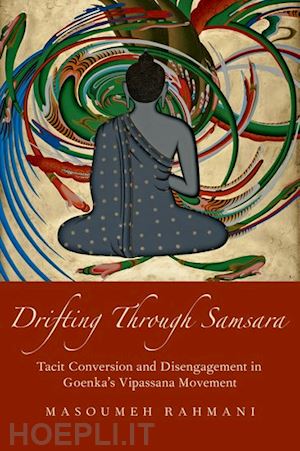In Drifting Through Samsara, Masoumeh Rahmani provides a fieldwork-based study of Goenka's Vipassana meditation movement in New Zealand. This group is distinguished by its refusal to identify as Buddhist and by a rich rhetorical repertoire for repackaging Theravada Buddhist teachings in pseudo-scientific and secular language. Drawing from qualitative research, the book examines the way the movement's discourse shapes unique processes and narratives of conversion and disengagement. Rahmani argues that conversion to this movement is tacit and paradoxically results in the members' rejection of religious labels and categories including conversion. Tracing the linguistic changes associated with the process of conversion and increased commitment, she outlines three main disengagement pathways: (1) pragmatic leaving, (2) disaffiliation, and (3) deconversion. Pragmatic leavers are individuals who were disengaged prior to developing a commitment. Rahmani argues that the language of these leavers is characterised by pragmatisms, dualistic discourse, and ambivalence, and their post-disengagement involves an active gravitation towards practices with easily accomplished goals. Disaffiliates and deconverts are individuals who disengaged after years of intense commitment to the movement. One of the distinguishing features of disaffiliation narratives is self-doubt resulting from the movement's ambiguous discourse regarding progress. For these people post-disengagement often involves the retrospective adoption of Buddhist identity. Rahmani finds that as a consequence of its linguistic strategies, deconversion is a rare exit pattern from this movement. In general, however, the themes and characteristics of both disaffiliation and deconversion fit the contours of exit from other traditions, even though conversion was tacit in the first place. The book thus questions the normative participant recruitment approach in conversion studies and argues that a simple reliance on the informants' identification with or rejection of religious labels fails to encompass the tonalities of conversion in the contemporary spiritual landscape.












